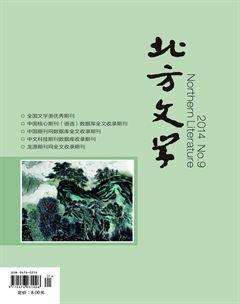认知语言学视域下的《渭川田家》英文译本的比较研究
摘 要:《渭川田家》是唐朝著名诗人王维的成名之作。这首诗歌的译本很多,但是真正质量上乘的译本并不多。从认知语言学翻译理论中的语境创设最大限度的等值原理来看,许渊冲的译本比较好的反映了原文的意思和语境。
关键词:认知语言学;语境
一、《渭川田家》诗歌概述
《渭川田家》是唐代诗人王维晚年时期的作品。这首诗描述的是一幅夕阳西下渭川农家恬淡而悠闲的生活画卷。整首诗歌语言朴素,使用近乎白描的手法,描写了乡村人物和景象皆有所归的情景。当时的王维在政治上正处于失意之时,他所倚重的官员张九龄被贬回家,王维不知自己路在何方,无处可归,看到这种景象,作者有感而发。原诗原文如下:
渭川田家
王维
斜阳照墟落,穷巷牛羊归。
野老念牧童,倚杖候荆扉。
雉雊麦苗秀,蚕眠桑叶稀。
田夫荷锄至,相见语依依。
即此羡闲逸,怅然吟式微。
二、《渭川田家》英文譯本的比较研究
在美国,唐代诗歌被翻译出英文最多的是王维的诗歌,也许是因为王维的诗歌多描写田园生活,这种生活同时也是很多美国人所向往的,所以收到了美国人的青睐。《渭川田家》的英文译本较多,现选取其中的三个译本进行研究。
译文1: FARM HOUSE ON THE WEI STREAM
The slanting sun shines on the cluster of small houses upon the Heights.
Oxen and sheep are coming home along the distant lane.
An old countryman is thinking of the herd - boy,
He leans on his staff by the thorn - branch gate, watching.
Pheasants are calling, the wheat is coming into ear,
Silk -worms sleep, the mulberry - leaves are thin.
Labourers, with their hoes over their shoulders, arrive;
They speak pleasantly together, loth to part.
It is for this I long -unambitious peace!
Disappointed in my hopes, dissatisfied,
I hum Dwindled and Shrunken.
Translated by Amy Lowell
译文2: A FARM -HOUSE ON THE WEI RIVER
In the slant of the sun on the country -side,
Cattle and sheep trail home along the lane;
And a rugged old man in a thatch door
Leans on a staff and thinks of his son, the herd - boy.
There are whirring pheasants, full wheat ears,
Silk -worms asleep, pared mulberry - leaves.
And the farmers, returning with hoes on their shoulders,
Hail one another familiarly.
. . . No wonder I long for the simple life
And am sighing the old song, Oh, to go Back Again!
Translated by Witter Bynner
译文3: RURAL SCENE BY RIVER WEI
The village lit by slanting rays,
The cattle trail on homeward ways.
See an old man for the herd wait.
Leaning on staff by wicker gate.
Pheasants call in wheat field with ease;
Silk worms sleep on sparse mulberries.
Shouldering hoe, two ploughmen meet;
They talk long, standing on their feet.
For this unhurried life I long,
Lost in singing “Home -going song”.
Translated by Xu Yuanchong
从认知语言学视角来看,能够被读者比较轻松的认知的前提是翻译者的译文所创设的语境应该和原文所创设的语境最大限度的等同。本诗的原意是在夕阳西下之时,牛羊都缓慢地归回到村里。年迈的老者思念放牧的牛童,拄着拐杖,倚在柴门的门口在等待他们的归来。雉鸡在鸣叫,麦苗在抽穗,春蚕应经休眠,桑叶已经稀疏。农夫已经荷锄归来,相互之间见面互相问好。看见此情此景真的让我非常的羡慕,在惆怅之中,我不仅吟诵起了诗歌《式微》。从这首诗歌的语境来看,译文3能够清晰地再现日暮之下,各种人和物皆有所归的情景,译文1和2都是外国人所译,对中国的文化不能全部的了解,出现了部分错译和漏译现象。从认知语境的创设来看,译文3应该属于质量上乘。
参考文献:
[1] Bassnett, Susan. Transplanting the Seed: Poetry and Translation[A]. In Bassnett, Susan. & Andre Lefevere. (eds.).Constructing Cultures: Essays on Literary Translation [C] .Shanghai : Shanghai Foreign Language Education Press, 2001:
[2]崔永禄,文学翻译佳作对比赏析[C],天津:南开大学出版社, 2003
[3]方梦之,译学辞典[Z],上海:上海外语教育出版社,2004
[4]林语堂,论翻译[A],罗新璋,翻译论集[C],北京:商务印书馆,1984
[5]吕叔湘,中诗英译比录[M],北京:中华书局,2002
作者简介:王晓辉(1977.1—),男,研究生,现为东北电力大学外国语学院讲师,主要研究方向为英美文学和英语教育。

